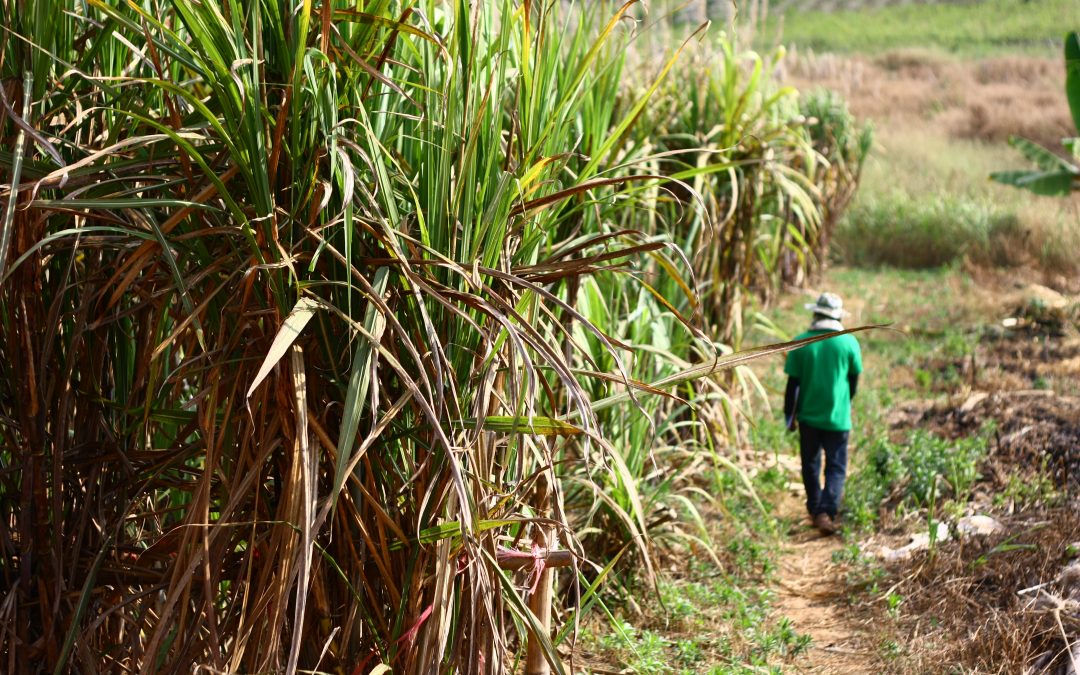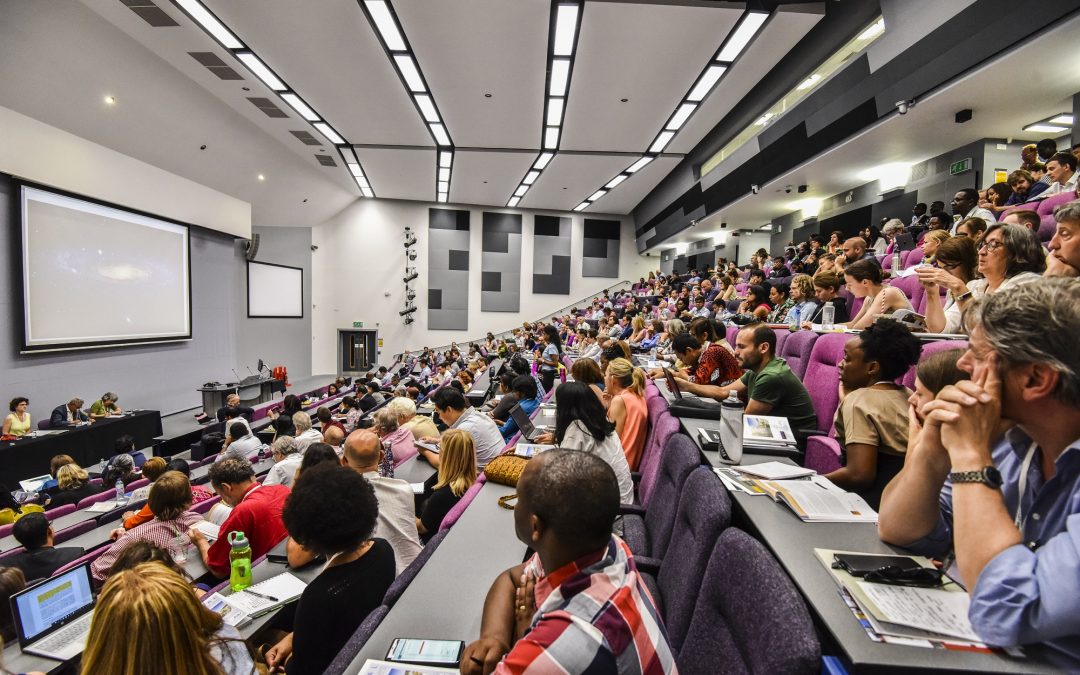
Leadership for Development Interrogated
Kelechi Ekuma, Lecturer in Management, Governance and Development, Global Development Institute
Researchers from the University of Manchester and the University of Melbourne recently meet at the Global Development Institute (GDI), University of Manchester to brainstorm and share ideas on the changing nature and contexts of leadership for development (L4D), with a view of better understanding the influence of ‘development leaders’ in promoting or retarding development initiatives.

Governing Extractive Industries: Politics, Histories, Ideas
Governing Extractive Industries: Politics, Histories, Ideas is an open access title available which means it is free to read at Oxford Scholarship Online and offered as a free PDF download from OUP.
 Proposals for more effective natural resource governance have traditionally emphasised the importance of institutions and governance, but say less about the political conditions under which institutional change occurs. Governing Extractive Industries synthesises findings regarding the political drivers of institutional change in extractive industry governance. It analyses resource governance from the late nineteenth century to the present in Bolivia, Ghana, Peru, and Zambia, focusing on the ways in which resource governance and national political settlements interact. The authors explore the nature of elite politics, the emergence of new political actors, forms of political contention, changing ideas regarding natural resources and development, the geography of natural resource deposits, and the influence of the transnational political economy of global commodity production.
Proposals for more effective natural resource governance have traditionally emphasised the importance of institutions and governance, but say less about the political conditions under which institutional change occurs. Governing Extractive Industries synthesises findings regarding the political drivers of institutional change in extractive industry governance. It analyses resource governance from the late nineteenth century to the present in Bolivia, Ghana, Peru, and Zambia, focusing on the ways in which resource governance and national political settlements interact. The authors explore the nature of elite politics, the emergence of new political actors, forms of political contention, changing ideas regarding natural resources and development, the geography of natural resource deposits, and the influence of the transnational political economy of global commodity production.
This book has been several years in the making. Ideas for the research project on which it is based slowly began cooking in 2012 as part of wider discussions within the Effective States and Inclusive Development (ESID) Research Centre, an international collaboration of research centres coordinated by the Global Development Institute at the University of Manchester. ESID’s unifying question is: ‘What kinds of politics can help to secure inclusive development, and how can these be promoted?’ This research project asked how one might understand the interactions between political settlements, extractive industry governance, and patterns of inclusion over the long haul. The authors had each worked on extractive industries for a number of years, and for each of them it was more than obvious that politics is central to how the sector is governed. However, the challenge of finding a formal language for talking about this political dimension, and of doing so in a way that would allow for systematic comparison and synthesis across different country contexts, piqued the researcher’s interest. And so began the initiative that has culminated in this open access book.
The books chapters cover: resource extraction and inclusive development before looking at specific examples in Peru, Bolivia, Zambia and Ghana. Political settlements, competitive clientelism and political economy are also analysed.
- Read the book at Oxford Scholarship Online
- Read free PDF download

How representations of Africa by NGOs impact diaspora community’s identity and engagement with international development
Edward Ademolu, PhD Researcher, Global Development Institute
What role, if anything, do representations of Africa by NGOs have on identity and engagement with International Development, by African diaspora communities?” Do they, readily accept development representations as visual documentaries upholding authoritative truths about Africa and communities therein? Are these popular images in sync with their own personal interpretations and views of their countries of heritage? Or do they simply reflect more popular understandings of and by ‘the British public’ within which African diaspora are implicated? As such, all these speculative questions and theoretical possibilities necessarily form and undergird the foundation upon which my research is situated.

Seeing and Being Development’s ‘Other’: Representations of Africa and Diaspora Audiences
Edward Ademolu, PhD Researcher, Global Development Institute
As a young child in the 1990s my introduction to international development was through watching Comic Relief’s performative biennial telethon ‘Red Nose Day’. This high-profile event armed with prosthetic noses, mainstream contemporary music, and a slew of largely-white celebrities from film and the pop world fronting carefully-curated episodes of black and brown suffering, opened my eyes to distant poverty. While Comic Relief telethons raise, as they always do, millions of sympathy-laden donations from well-entertained audiences, my lasting impressions of this programme would always be of a vast horde of shaven-headed, undifferentiated masses smiling and waving enthusiastically at the documentary-makers camera. I distinctly remember feeling slightly perplexed about why there were so many brown children with no shoes, soiled Disney-branded t-shirts and who had seemingly full stomachs held by very slim frames.

Podcast: Studying African Farmer-led Irrigation with Phil Woodhouse and Dan Brockington
Professor Phil Woodhouse and Professor Dan Brockington discuss their research project Studying African Farmer Led Irrigation. The project brings together social science researchers from the UK and irrigation scientists from the Netherlands to work with African researchers in Mozambique and Tanzania.
For more on Phil Woodhouse:
For more on Dan Brockington:
For more on Studying African Farmer-led Irrigation:
- Studying African Farmer-led Irrigation
- Policy Brief: Farmer-led irrigation development and investment strategies for food security, growth and employment in Africa.
- African farmer-led irrigation development: re-framing agricultural policy and investment? Philip Woodhouse, Gert Jan Veldwisch, Jean-Philippe Venot, Dan Brockington, Hans Komakech & Ângela Manjichi.
You can also find this and other episodes on:
Note: This article gives the views of the author/academic featured and does not represent the views of the Global Development Institute as a whole

Has the One Belt One Road Initiative built an inroad into global trade?
Gindo Tampubolon, Lecturer in Poverty, Global Development Institute
In 2013 President Xi Jin Ping announced to the world China’s One Belt One Road Initiative. The Initiative set to change the landscape of global trade in this century through strategic infrastructure investments, recasting the past Silk Road and moulding a new Maritime Silk Road. Much is not known about the Initiative, including which other countries are involved in the six major economic corridors: the China–Mongolia–Russia corridor, the new Eurasian Land Bridge, the China–Central Asia–West Asia corridor, the China–Indochina Peninsula corridor, the China–Pakistan corridor, and the Bangladesh–China–India–Myanmar corridor. So far information garnered by observers, including the World Bank, listed 60 countries in the last five years. read more…

DSA2018 at the Global Development Institute
We were delighted to host the 2018 Development Studies Association Annual Conference at The University of Manchester, focused on global inequalities, a theme which is one of the University’s five research beacons.
Development Studies has a long tradition at Manchester, with 2018 marking our 60th anniversary as a University department. 2018 is also the 40th anniversary of the Development Studies Association and ahead of the conference, we produced a short documentary celebrating these milestones. read more…

Corruption and innovation in European regions: building on the shoulders of giants
Corruption or poor quality governance is inimical to wealth creation. Corruption imposes disincentives to economic activity via two channels. First, a corrupt government is unattractive to people outside its pool of cronies and connections (“crons & cons”), prohibiting outside talents to replenish the governance structure. Second, it imposes disincentives to essentially risky innovative activities (bringing new products or services to the market cf Schumpeter 1942). The risk for the inventor is initially set by an unfair condition put in place to the advantage of the pool of crons and cons (e.g. licences that prioritise them and not awarded on merit). Also inventors are under a shadow of threat: extraction of their innovation rewards as arbitrary rents. Thus would be inventors shrink. A variant of Acemoglu-Robinson hypothesis follows i.e. corruption hinders technological innovation.

Call for papers – Public Service Ethics, Values and Spirituality
Call for Papers: Public Service Ethics, Values and Spirituality: Challenges and Opportunities for Developing and Transitional Countries
Special issue in: Public Administration and Development (PAD)
Special Issue Guest Editors
Dr Farhad Hossain (Corresponding Editor), The University of Manchester, United Kingdom
Dr Anthony Sumnaya Kumasey, University of Professional Studies, Accra, Ghana
Dr Christopher J. Rees, The University of Manchester, United Kingdom
Dr Aminu Mamman, The University of Manchester, United Kingdom

Gender and environmental relations in the disposal of menstrual hygiene products
By Mariana Lopez, PhD researcher, Global Development Institute
A recent study in rural Jharkhand, India found that 17% of the women dumped their sanitary pads in the same pond where they bathe. “If you search the bottom of the lake, you will find the whole bed covered with napkins.”
Research has been conducted on various dimensions of menstrual hygiene, including: the origins of menstrual taboos; health issues associated with tampons; the effects of accessibility to sanitary products on girls’ education, hygiene and rights and the dynamics behind the advertisements of menstrual hygiene products. However, an aspect that remains understudied are the effects that these products have on the environment and on the livelihoods of waste pickers.
